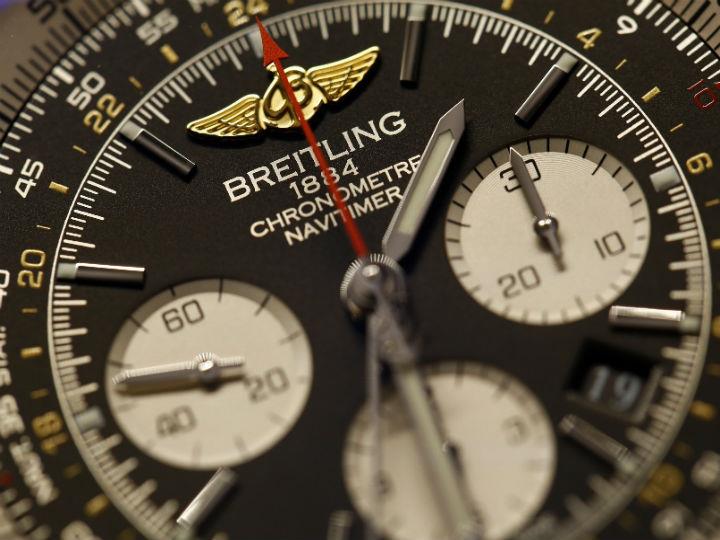by Martin Banks
After several decades of growth time has finally caught up with the high-end watchmaking business. The pandemic has brought tourism to a halt and left luxury shops closed causing an unprecedented drop in revenues. In 2020 Swiss watch exports have declined by 33% year-to-date, the sharpest and deepest decline in the last 20 years. Even in 2009, in the midst of the great recession, it fell by 23%. Yet, analysts say that COVID-19 has not altered the main trends in the sector but rather accelerated them. Cracks in the ostensibly spotless world of Swiss watchmaking have been about to emerge for a fairly long time. The lack of leadership, outdated strategies, an over-reliance on mainland Chinese consumers and the inability of the sector to live up to the challenges of the new digital world are among the real culprits. The decade after the Great Recession has been in many ways the decade of lost opportunities for the sector which found itself stuck in the illusion of the ‘timeless’ past.
The rigidity of ‘luxury strategies’ of the sector’s majors is hardly a surprise given the generation factor: until very recently the industry was controlled and managed by the cohort of baby-boomers. Bernard Arnault, CEO of LVMH group (Hublot, TAG Heuer and other top brands) who briefly surpassed Jeff Bezos as the richest person in the world in December last year, is 71. Nick Hayek Jr., CEO of the Swatch Group (Blancpain, Breguet, Glashutte Original, Harry Winston, Longines, Omega, Tissot, and RADO) this year is turning 66. The outgoing CEO of Longiness, the legendary Walter Von Kanel, is now 79.
Swatch group, which saw its market value plunging by almost 30% in 2020, was forced into a major management reshuffle this summer, promoting a new generation of managers such as Omega’s CEO Raynald Aeschlimann to a group-level role and appointing relatively younger Matthias Breschan and Sylvain Dolla to lead Longines and Tissot respectively. The reshuffle is yet to bear fruit. The Richemont group, which controls brands such as IWC, Cartier, Vacheron Constantin, meantime, appears lost in a quagmire with its watch brands underperforming, assorted personnel issues and a digital strategy yet to produce results.
Since the start of the coronavirus crisis, the Genevan group’s management model has been criticised with employees angry that their annual bonuses have been cut, while management has seen its remuneration increase by more than one third in the last financial year. It was also hit by the sudden departure of Sophie Guieysse, the group’s human resources director, in the midst of a coronavirus crisis. She departed after managers complained about her alleged aggressive methods and personality. In Turin and Milan, strikes were organised on June 5 by several hundred workers at the jewellery division of the Swiss luxury group in protest at cuts in their salaries.
Another big name CEO in the luxury watch segment is the charismatic Georges Kern, of Breitling. With an impressive growth track record he has relaunched Breitling in the huge Chinese market. The challenge to come, though, will be his reliance on huge marketing budgets and celebrity endorsements that may now prove a relic of the past. Elsewhere, family-owned Patek Philippe and Chopard will have to adapt to the new world with the tools they have after a generation change that both companies have experienced while Audemar Piguet, CEO of Bennahmias, with his ability to take risks and adapt to change, looks to have the skills to guide his company to the next challenge. His market experience is extensive but, even so, his strategy has made him enemies in the important leading multi brand retailer environment.
Davide Traxler, CEO of Parmigiani, another high-end Swiss watch maker and the brand which is spotted on the wrist of Prince Charles, perhaps the only manager in the sector widely identified with real turnaround experience, has long argued that the luxury watches industry has to look beyond its traditional markets and shouldn’t consider China a magic cure. With years of experience in the trade, his impressive and immediate success in Chopard and a “cleansing” of Parmigiani mark him as an “out of the box thinker”. Rather usefully, Traxler, who was hired in 2018 to help the company to accomplish a successful turnaround, is also used to managing with little or no budgets. Industry analysts and retailers quote Parmigiani’s case in the context of the COVID-19 crisis as a success story.
According to DLG, a consultancy, Parmigiani has been among the most crisis-resilient brands during the health pandemic. Last year, the firm made headlines launching a first-in-the-world wristwatch with a perpetual Islamic calendar, ‘Hijri’, and Arabic calligraphy to lure luxury-buyers from the Middle East. Their latest line unveiled this year, Tonda GT, is said to feature a design which blends classic and casual cues to boost its appeal to younger generation ‘disrupters’. In the beginning of the lockdown, the company launched an e-commerce boutique in the US and hosted online events – the move even a couple of years ago unthinkable for the staunchly offline sector.
Analysts say the industry has to realize that the world has changed and it is no longer enough to have an attractive legacy story. In order to survive, traditional brands have to open up new markets. This is a task for a new generation of managers, such as Aeschlimann at Omega, Dolla at Hamilton and Traxler at Parmigiani Fleurier, who have strategic agility and operational nimbleness to feel the market, hear the retailers and read into digital trends. Of course, time waits for no-one and, with no end in sight to the current crisis affecting the industry, such skills will be vital in the months and years to come.




 By: N. Peter Kramer
By: N. Peter Kramer
